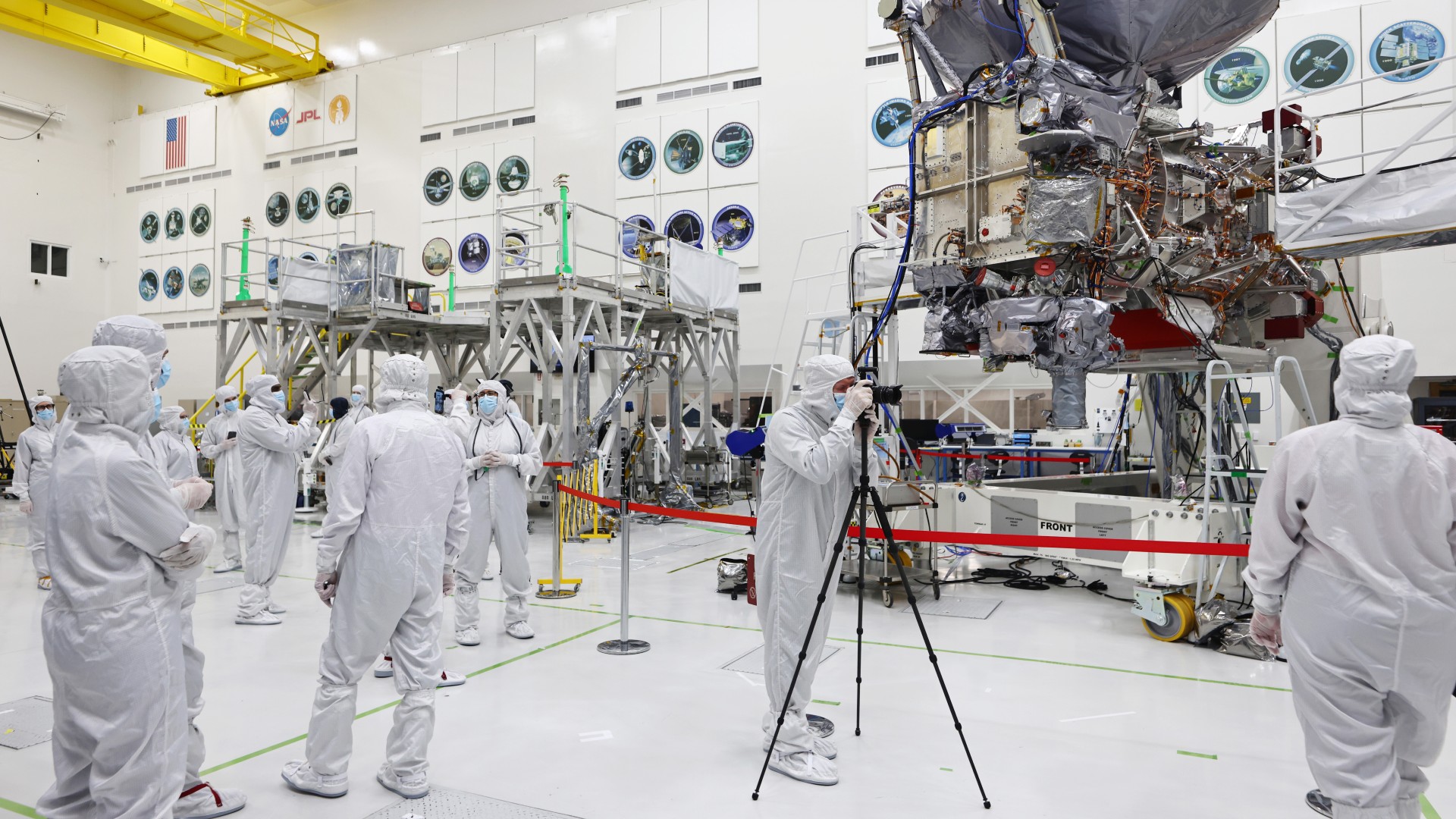Nasa mission to probe possibility of life on Europa
Exploration of Jupiter's icy moon could reveal how common habitable environments are in the universe

A free daily email with the biggest news stories of the day – and the best features from TheWeek.com
You are now subscribed
Your newsletter sign-up was successful
A Nasa spacecraft bound for Jupiter's icy moon Europa is scheduled to blast off from the Kennedy Space Center this week.
The Europa Clipper is the largest planetary explorer Nasa has ever built and its mission is to conduct 44 fly-bys of the moon to determine whether it could support life.
Among the top puzzles scientists are hoping to solve is whether the moon has the "water, energy and chemical building blocks required to host life as we know it", said National Geographic. This "frozen world" is a similar size to our own moon, but potentially contains "twice the amount of water as all of Earth's oceans combined".
The Week
Escape your echo chamber. Get the facts behind the news, plus analysis from multiple perspectives.

Sign up for The Week's Free Newsletters
From our morning news briefing to a weekly Good News Newsletter, get the best of The Week delivered directly to your inbox.
From our morning news briefing to a weekly Good News Newsletter, get the best of The Week delivered directly to your inbox.
Evidence of Europa's gigantic global ocean of liquid saltwater beneath its frozen crust first came to light during Nasa's 1996 Galileo fly-by mission which revealed the moon had its own magnetic field. The latest mission will use ice-penetrating radar to peer beneath the crust and search for hidden pockets of liquid water.
While the Europa Clipper "cannot detect life directly", said James O'Donoghue, a planetary astronomy expert from Reading University, on The Conversation, it "marks humanity's first dedicated mission to study an ocean world and search for signs of habitability".
The spacecraft is due to launch on Thursday, but won't reach Jupiter's orbit until 2030. If there's "even a hint that the stuff of life exists" on Europa, a separate surface lander would then be needed to probe deeper.
"If Europa Clipper shows that icy ocean worlds are habitable," Paul Byrne, a planetary scientist at Washington University in St. Louis, said, "then the implications for how common habitable environments are in the universe as a whole are absolutely staggering."
A free daily email with the biggest news stories of the day – and the best features from TheWeek.com